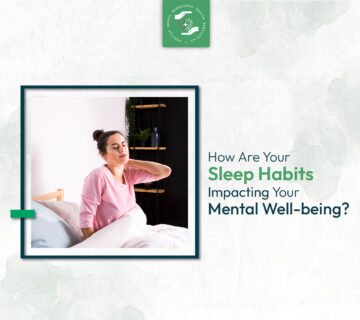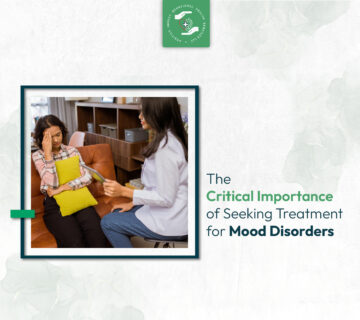In today’s fast-paced world, managing stress has become more important than ever. Many people are turning to mental health monitoring as a tool to help manage their stress levels. But how effective is it? In this blog, we’ll explore the potential benefits of mental health monitoring for stress management and how you can integrate it into your daily routine.
What is Mental Health Monitoring?
Mental health monitoring involves tracking various mental and emotional indicators to understand your overall well-being. This can include mood tracking, sleep patterns, stress levels, and more.
At its core, mental health monitoring is about paying close attention to your mind and emotions on a regular basis. By keeping tabs on how you feel and how those feelings fluctuate over time, you can gain valuable insights into what factors might be influencing your stress levels. This might include external elements like work pressure or personal relationships, or internal factors such as sleep quality and daily mood variations.
Mental health monitoring can be as simple or as complex as you choose. For some, it might involve jotting down daily mood notes in a journal. For others, it could mean using sophisticated apps that analyze a range of data points. The goal is to create a comprehensive picture of your mental state, enabling you to identify patterns and triggers that may contribute to stress.
Understanding the nuances of your mental health is crucial in today’s demanding world. With consistent monitoring, you can proactively address issues before they escalate into more significant problems. By becoming aware of subtle changes in your mental state, you can take steps to mitigate stressors effectively.
Benefits of Monitoring Your Mental Health
Monitoring your mental health can help you identify stress triggers, understand your emotional patterns, and take proactive steps to manage your stress levels. It’s like having a personal health assistant guiding you through your mental health journey.
One of the primary benefits of mental health monitoring is the ability to catch stress early. By regularly checking in with your emotions, you can identify when stress levels begin to rise and take steps to alleviate the pressure before it becomes overwhelming. This proactive approach can prevent chronic stress and its associated health issues.
Furthermore, understanding your emotional patterns can help you make informed decisions about your lifestyle. For instance, if you notice that your mood dips significantly after poor sleep, you can take measures to improve your sleep hygiene. This holistic approach to mental health can lead to better overall well-being.
Mental health monitoring also fosters greater self-awareness. By paying attention to your moods and reactions, you become more attuned to your needs and can address them more effectively. This self-awareness can enhance your emotional intelligence and improve your relationships with others.
Additionally, mental health monitoring can be incredibly empowering. It gives you the tools and knowledge needed to take control of your mental well-being. By tracking your mental health, you’re actively participating in your care, which can lead to better outcomes and a higher quality of life.
Many mental health monitoring tools also provide personalized insights and recommendations. For example, some apps use your data to suggest coping strategies tailored to your specific needs. This personalized approach can be more effective than one-size-fits-all solutions.
Lastly, mental health monitoring can help you communicate more effectively with healthcare providers. By tracking your symptoms and patterns over time, you can provide your therapist or doctor with detailed information, leading to more accurate diagnoses and tailored treatment plans.
How to Begin Monitoring Your Mental Health
Starting is easy. Many apps and devices are available to help you monitor your mental health. Choose one that fits your needs, set it up, and begin tracking your mood, sleep, and stress levels.
First, you’ll want to determine which aspects of your mental health are most important to you. Common metrics include mood, sleep quality, stress levels, and daily activities. Identify the areas where you feel you need the most insight and focus on tracking those initially.
Next, explore the various tools available. There are many apps designed specifically for mental health monitoring, such as Moodpath, which allows you to track your mood and get insights into your emotional health. Other popular options include Headspace and Calm, which also offer meditation and stress management techniques.
Once you’ve chosen your tools, it’s essential to set them up correctly. Follow the onboarding instructions carefully and ensure you’re comfortable with how to use the app or device. Some tools offer tutorials or help guides that can be extremely useful if you’re new to mental health monitoring.
Begin by tracking your chosen metrics daily. Consistency is key to getting meaningful data. Note down how you feel each day, any significant events or stressors, and your sleep patterns. Over time, this will build a comprehensive picture of your mental health.
Make it a part of your daily routine. Set aside a few minutes each day to check in with yourself and record your data. This can be a relaxing and reflective practice, helping you feel more connected to your emotional well-being.
Lastly, review your data regularly. Look for patterns or changes that could indicate underlying issues. If you notice consistent trends, such as heightened stress levels during certain periods, take proactive steps to address these triggers.
Tools and Apps for Mental Health Monitoring
There are various tools and apps available for mental health monitoring, such as mood tracking apps, sleep trackers, and stress management apps. Some popular ones include Headspace, Calm, and Moodpath.
Mood tracking apps are particularly useful for understanding your emotional patterns. Apps like Moodpath and Daylio allow you to log your mood and note any relevant activities or events. Over time, these apps can provide insights into what might be affecting your mood and suggest ways to improve your emotional well-being.
Sleep is a crucial component of mental health, and sleep trackers can help you understand how well you’re resting. Devices like the Fitbit or apps like Sleep Cycle track your sleep patterns and highlight any disruptions. Better understanding your sleep can lead to improved mental health and reduced stress levels.
Stress management apps, such as Calm and Headspace, offer guided meditations, breathing exercises, and other techniques to help manage stress. These apps can be invaluable for those looking to reduce their stress levels and improve their mental health.
For those dealing with specific mental health conditions, there are specialized apps available. For example, Sanvello offers resources and tools for managing anxiety and depression, while Woebot provides conversational agents that use cognitive-behavioral therapy techniques to support mental health.
Most apps and tools also offer various levels of customization, allowing you to tailor them to your specific needs. This personalization ensures that the monitoring process is as effective and relevant as possible for your unique situation.
Additionally, integrating multiple tools can provide a more holistic view of your mental health. Combining mood tracking, sleep monitoring, and stress management practices often yields the best results, giving you comprehensive insights into your mental well-being.
Connecting your mental health monitoring tools with other health devices, like fitness trackers, can offer even deeper insights. Understanding how physical activity impacts your mental state can help you make more informed lifestyle choices.
When to Seek Professional Help
While mental health monitoring can provide useful insights, it’s important to seek professional help if you experience severe stress or mental health issues. Therapists and counselors can offer additional support and treatment options.
Mental health monitoring tools are a great first step, but they are not a substitute for professional care. If you notice persistent patterns of stress, anxiety, or depression, it might be time to consult a mental health professional. They can provide diagnoses, therapeutic interventions, and medication if necessary.
It’s crucial to recognize when self-monitoring isn’t enough. Symptoms such as prolonged sadness, severe anxiety, recurring panic attacks, or thoughts of self-harm should be taken seriously and addressed by a professional.
Professional help is especially important if you have a history of mental health issues or if you’re dealing with significant life changes. Therapists can offer targeted strategies and cope with techniques tailored to your situation, providing a more structured approach to managing your mental health.
If you’re unsure where to start, reaching out to your primary care provider can be a good first step. They can refer you to qualified mental health professionals and guide you through the process.
Remember, seeking help is a sign of strength, not weakness. It shows that you are committed to taking care of your mental health and well-being.
You can find information on various mental health conditions and treatment options at NIMH’s Health Topics. This resource is a valuable tool for anyone considering professional help for mental health issues.
For those experiencing severe depression, Positive Impact Behavior Health offers comprehensive Depression Treatment that can provide the support and therapy needed to overcome the challenges of depression.
Final Thoughts on Mental Health Monitoring and Stress Management
Mental health monitoring can be a valuable tool in managing stress, providing insights and helping you take proactive steps towards well-being. By understanding your stress levels, using apps and devices, and seeking professional help when needed, you can lead a healthier, more balanced life.






No comment